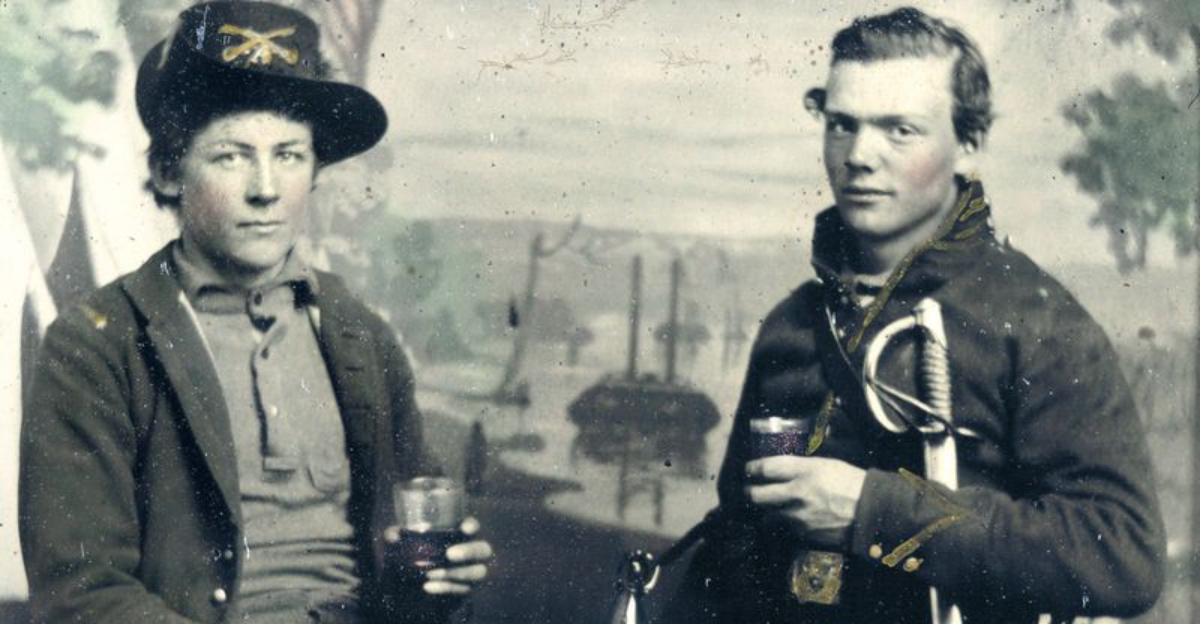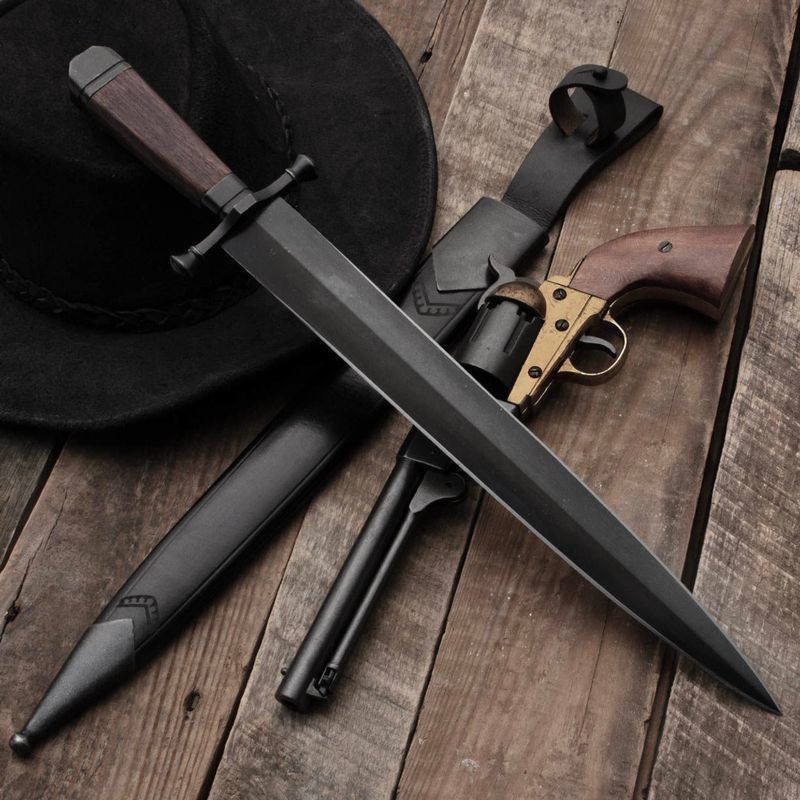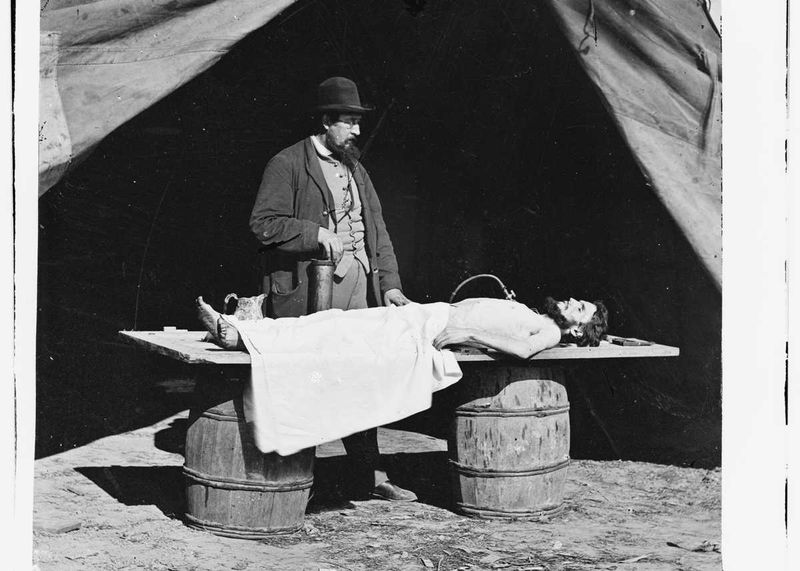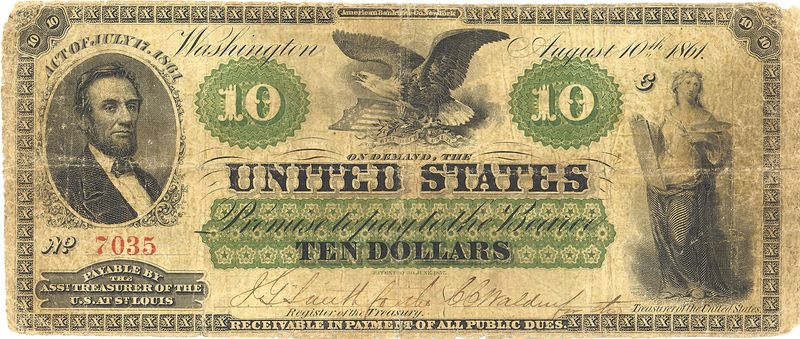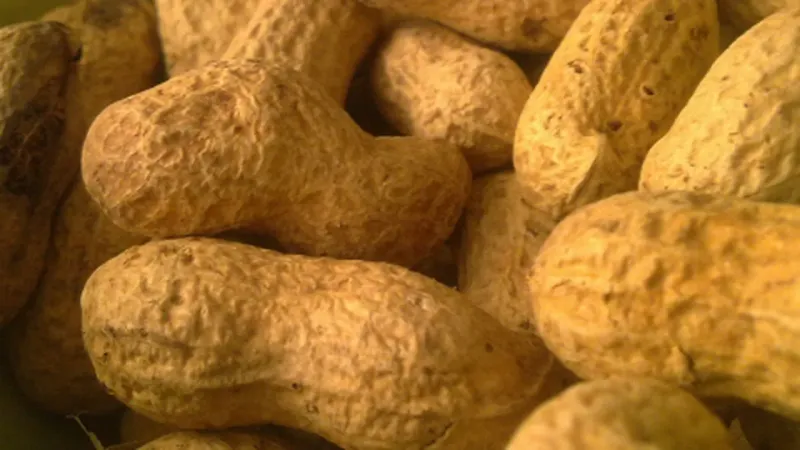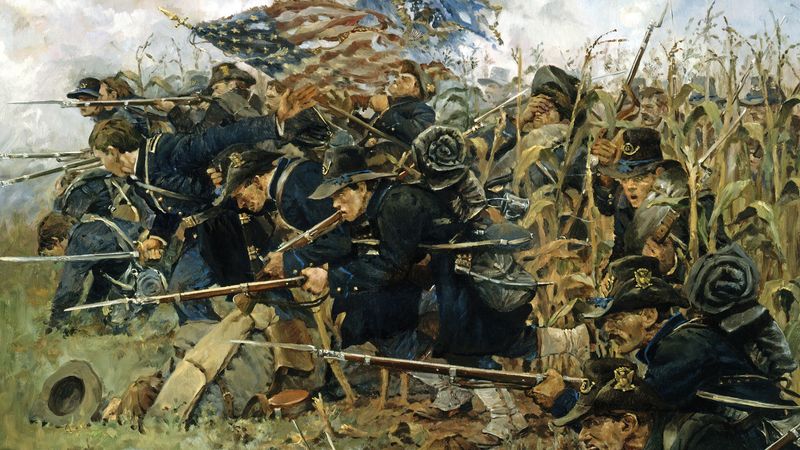The American Civil War was a time of immense hardship, but amidst the turmoil, soldiers and civilians alike found ways to inject humor into their daily lives. One such avenue was through the creation and use of colorful slang terms. These expressions not only provided comic relief but also fostered camaraderie among troops. Here are 17 Civil War slang terms that are sure to bring a smile to your face:
1. Arkansas Toothpick
Arkansas Toothpick brings to mind an image of a hardy, no-nonsense frontier tool. Despite its rather misleading name, this hefty knife wasn’t used for picking teeth but rather for more dangerous endeavors. Originating as a term to describe a large dagger used by frontiersmen, it became synonymous with the rugged individualism of the American soldier. This was a weapon that spoke volumes about the resourcefulness and grit of those who wielded it. In camps and on battlefields, the Arkansas Toothpick was as much a part of the soldier’s identity as his uniform. Its legend endures, reflecting an era of both hardship and humor.
2. Quick Step
When nature calls and won’t be ignored, soldiers had a humorous way of coping with the situation. The term Quick Step referred to the ailment we today call diarrhea. Known by various names like the Tennessee or Virginia Quick Step, this condition was a common and unwelcome companion among troops. The unpredictable diet and stress of war didn’t help matters, making this ailment a frequent topic of dark humor. It brought a shared chuckle in the ranks, as soldiers often found themselves hastily retreating to the nearest cover. Quick Step remains a testament to the enduring spirit of humor in hardship.
3. Sawbones
The term Sawbones might send a shiver down your spine, yet it was an affectionate nickname for the field surgeons of the Civil War. These men were the unsung heroes, working tirelessly to save lives amidst the chaos of battle. Known for their skillful, yet often rudimentary, amputations, they earned their moniker through the grim reality of their work. Despite the crude conditions, their efforts were vital to the survival of countless soldiers. Revered and sometimes feared, Sawbones became a testament to the medical challenges and advances of the era. Their legacy is a poignant reminder of the war’s harsh realities.
4. Skedaddle
Skedaddle captures the essence of a hasty retreat, a term that has endured through time. During the Civil War, when soldiers found themselves outmatched or simply overwhelmed, to skedaddle was to beat a quick path to safety. It’s a word that evokes both the urgency and the chaos of battle, where strategy sometimes meant knowing when to run. This slang became popular across generations, symbolizing the quick-thinking and adaptability of soldiers. The enduring popularity of skedaddle showcases the lasting impact of Civil War vernacular on the English language, a legacy born from necessity and wit.
5. Fit to Be Tied
Fit to Be Tied conveys the boiling point of frustration, an expression that captures intense agitation. Used among the ranks, it described someone on the brink of losing their composure. In the high-stress environment of war, tempers could flare, and this colorful phrase provided a humorous outlet. Whether related to a botched battle plan or missing rations, soldiers found a shared understanding in this vivid expression. Its lasting presence in modern language as a descriptor for anger highlights the timeless nature of human emotion. Fit to Be Tied is a reminder of the shared experiences that bind us across generations.
6. Wallpapered
Wallpapered paints a vivid picture of a soldier who has perhaps indulged a bit too much in liquid courage. In the lively world of Civil War camps, terms for inebriation were as colorful as they were plentiful. To be wallpapered was to be heavily intoxicated, a state also known through expressions like having a brick in your hat. Such slang provided a light-hearted lexicon for soldiers to describe their off-duty escapades. These moments of levity, although fleeting, offered respite from the relentless pressures of war. Wallpapered, then, reflects a shared camaraderie and the timeless human tradition of finding joy in simplicity.
7. Horse Sense
Horse Sense, a nod to practicality and wisdom, reflects the straightforward thinking valued during the Civil War. Implied humorously, it suggested that even a horse could understand a particular situation, highlighting the obviousness of some decisions. In a world where survival depended on quick wit and practical decisions, horse sense was a highly regarded trait. Soldiers who possessed it were often relied upon for guidance, their no-nonsense approach earning them respect. The term endures in today’s lexicon, a tribute to the savvy soldiers who navigated the complexities of war with a blend of humor and intelligence.
8. Snug as a Bug
Snug as a Bug evokes a sense of comfort that seems out of place on the battlefield, yet it reflects the small joys soldiers found. In the cold, harsh realities of war, finding a warm spot to rest was a luxury. This phrase, still in use today, painted a picture of a soldier finding solace in the little things, like a cozy tent or a well-earned rest. It became a symbol of resilience and adaptability, showing how soldiers created comfort in discomfort. Snug as a Bug remains a heartwarming reminder of the enduring human spirit in even the direst of circumstances.
9. Greenbacks
Greenbacks were more than mere currency; they represented the economic heartbeat of the Union during the Civil War. Introduced as a paper currency to fund the war effort, these notes were distinct with their green ink, a practical measure that led to their nickname. At a time when financial stability was as crucial as military strategy, greenbacks became emblematic of Northern ingenuity. Soldiers and civilians alike grew accustomed to this new monetary landscape, navigating a world where paper money held the promise of unity and victory. This term remains a historical footnote to the era’s innovative responses to wartime challenges.
10. Graybacks
Graybacks held a dual meaning, referencing both Confederate soldiers and the pesky lice that plagued them. This slang highlighted the everyday nuisances of camp life, where hygiene was a constant struggle. Soldiers often joked about their unwelcome companions, turning discomfort into comedy. The term’s duality also mirrored the gray uniforms of the Confederacy, drawing a cheeky comparison between the soldiers and the tenacious insects. Graybacks thus encapsulates the dual struggles of war—against both human foes and the relentless challenges of nature. Its lasting legacy is a testament to the enduring humor found amidst adversity.
11. Bread Basket
Bread Basket is a playful term for the stomach, illustrating the lively and inventive language of Civil War soldiers. Used to describe both hunger and injury, it added a touch of levity to the grim realities of war. In campfire conversations, soldiers might joke about taking a hit in the bread basket, using humor to cope with the constant threat of violence. This slang served as both a literal and metaphorical reminder of the vulnerability of life during wartime. Bread Basket remains a vivid example of the colorful expressions born from the unique experiences of Civil War soldiers.
12. Fresh Fish
Fresh Fish is a term that brings to life the experience of new recruits, often fresh-faced and eager, thrown into the chaos of war. These newcomers were the subject of both hazing and mentorship, as seasoned soldiers imparted their hard-earned wisdom. The name itself carries a humorous undertone, likening the recruits to fish out of water, struggling to adapt to military life. It captures the blend of camaraderie and challenge that defined the soldier’s journey. Fresh Fish remains a nostalgic nod to the rites of passage that transform civilians into soldiers, underlining the timeless nature of military tradition.
13. Goober Peas
Goober Peas might sound peculiar, but it’s a term that brings a smile, referring to the humble peanut. A staple snack for soldiers, these simple legumes provided much-needed sustenance. Their popularity was immortalized in a whimsical wartime song, capturing the soldiers’ affection for this unassuming food. Goober Peas became synonymous with the everyday life of a soldier, representing both nourishment and nostalgia. The term highlights how soldiers found joy in the simplest of pleasures, turning a basic food item into a symbol of home and comfort. It’s a testament to the enduring spirit of resourcefulness and humor.
14. Lucifer
Lucifer, an unexpected term for a match, was the spark that lit fires and pipes across Civil War camps. This small yet essential item carried a devilish name, reflecting both its utility and the mischief it sometimes ignited. Soldiers relied on lucifers for warmth and camaraderie, gathering around campfires to share stories and songs. The term’s playful application adds a dash of personality to an otherwise mundane tool, illustrating the soldiers’ knack for infusing everyday items with humor. Lucifer remains a delightful reminder of how language evolves, capturing the creativity and spirit of those who lived through history.
15. Sunday Soldiers
Sunday Soldiers paints a vivid picture of troops more concerned with appearances than battle readiness. This term playfully mocked those who prioritized their uniforms over their duties, a gentle jab at the vanity found in all ranks. In an era where survival often trumped style, Sunday Soldiers stood out like peacocks in a barnyard. Their focus on polish and parade reflected an amusing contrast to the rugged realities of warfare. This slang offers a light-hearted commentary on the diverse personalities within the military, reminding us that even amid conflict, human nature remains unchanged.
16. Dog Robber
Dog Robber conjures an image of a soldier assigned to less glamorous duties, such as cooking or performing menial tasks. These individuals, often envied for their perceived easier workload, played a vital role in maintaining morale and daily operations. The term’s humorous connotation highlights the playful banter between those who fought on the front lines and those who supported them from camp. Dog Robber underscores the importance of every role within the military, celebrating the unsung heroes whose work behind the scenes kept the army functioning. It’s a nod to the camaraderie and interdependence that define military life.
17. Bully
Bully was an exclamation that rang through Civil War camps, a cheer of approval or encouragement akin to today’s hurrah. This infectious term added a spirited flair to the soldier’s lexicon, embodying the enthusiasm and camaraderie that buoyed troops through challenging times. Whether celebrating a victory or rallying morale before a battle, Bully encapsulated the unity and resilience of those who fought. Its cheerful tone offered a counterbalance to the often harsh realities of war, reminding soldiers of the power of positivity. Bully continues to resonate as a historical echo of the enduring human spirit in the face of adversity.
